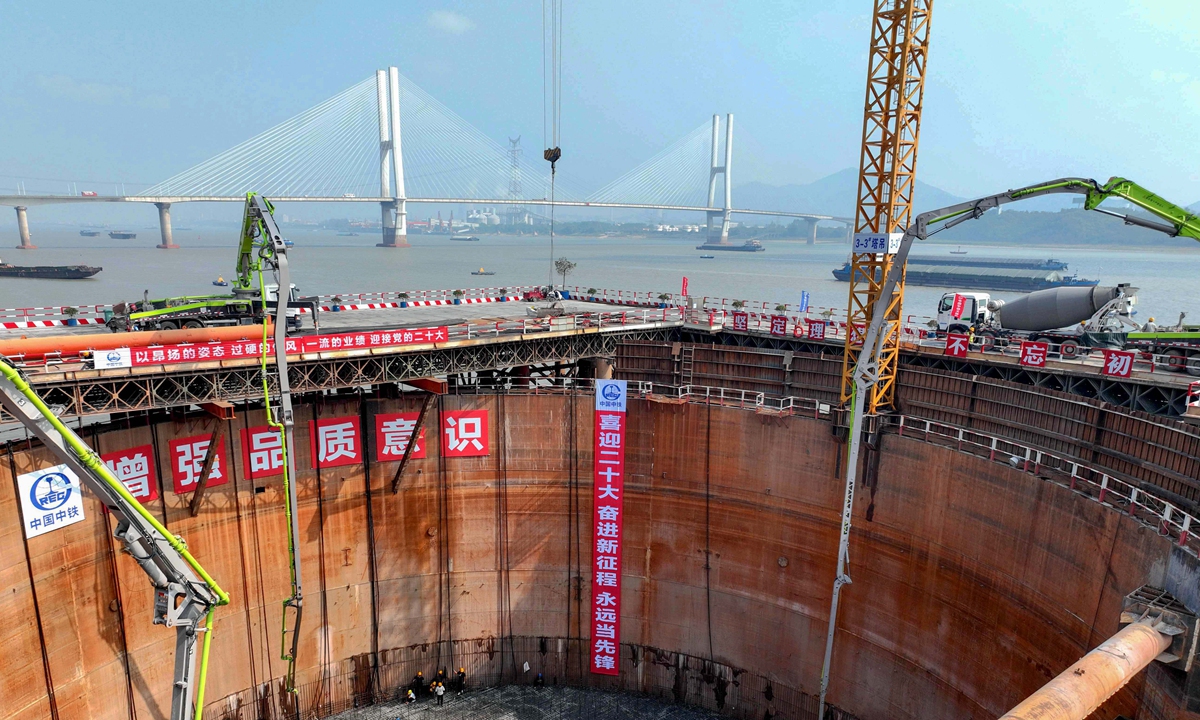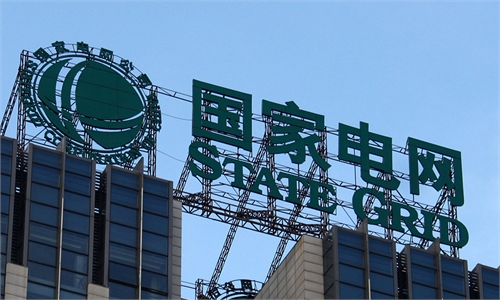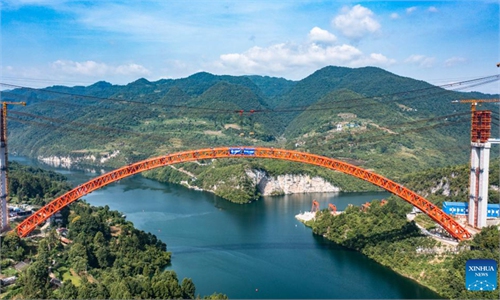China accelerates infrastructure construction
Government departments are all-in to bolster economic growth

Hundreds of employees work around the clock as a 72-hour cement pumping task begins at one of the piers of a Yangtze River bridge at Tongling, East China's Anhui Province on October 16, 2022. Photo: cnsphoto
China's infrastructure construction is accelerating, an indication that the central government aspires to do whatever in its capacity to build up public confidence in the country's economic growth despite a new wave of coronavirus outbreaks.
The National Development and Reform Commission (NDRC), the country's economic planner, convened a meeting on November 25, with senior officials from NDRC again calling on local governments to speed up infrastructure construction on newly approved projects, according to a statement published on the NDRC's website on Monday.
At the meeting, the officials disclosed that the construction and capital payment progress of two groups of infrastructure projects had been "better than expected".
The meeting also urged local governments to "continue maintaining high fighting spirit and enthusiasm" so work could start on the projects before the end of November.
Many other government departments also rolled out measures to stimulate infrastructure construction. The Ministry of Finance recently allocated 7 billion yuan ($977 million) of key irrigation projects funding to support the follow-up construction work of the Three Gorges and other projects.
And, China's securities regulator announced on Monday the resumption of mergers and acquisitions by real estate developers and refinancing by the listed developers, among announced "five steps" that took effect immediately.
Experts said that the policies don't target short-term economic goals, but intend to lay a solid foundation for a steady economic rebounding, presumably around the second quarter next year.
"Under the current economic situation, a single policy is not sufficient to consolidate market confidence. Therefore, the government is sending repeated messages and launching pro-growth policies to guide the economy back on the normal growth track," Hu Qimu, deputy secretary general of the digital-real economies integration Forum 50, told the Global Times on Tuesday.
Hu said consumer spending is facing downward pressure because of the coronavirus flare-up, while the country's foreign trade may face more headwinds given global economic uncertainties. This makes domestic investment even more important to lead the economic growth in the coming months.
Public data has shown that local governments are pushing implementation of projects where policy-based and developmental financial instruments are adopted. In South China's Guangdong, for example, the province had signed 274 such projects with a total investment of about 118 billion yuan as of the end of October, a report of Nanfang Daily said.
By October, construction had begun on more than 60 percent of the 274 projects, the newspaper said.
In the first 10 months of this year, China's infrastructure investment rose by 8.7 percent year-on-year, 0.1 percentage point higher than in the first three quarters, data from the National Bureau of Statistics showed.
Experts said that the new policies aimed at reinvigorating the property sector are the strongest ever, but it will take time for those policies to take effect.
Yan Yuejin, research director at Shanghai-based E-house China R&D Institute, told the Global Times that policies are mainly intended to control real estate sector risks by improving the cash-strapped developers' capital flow so that they could finish stalled housing projects.
Yang Haiping, general manager of the strategic research department at the Bank of Inner Mongolia, told the Global Times that China will likely maintain a strong growth in infrastructure construction and manufacturing sector investment in the fourth quarter, but in the short term, the country's fixed assets investment will still be burdened by the real estate slump.
Hu noted that as China is making coronavirus prevention and control measures more precise and effective, the economy is likely to rebound in the first half of 2023.
"China aims to achieve a stable economic growth during the rest of this year and a good start in GDP performance next year," he said.



